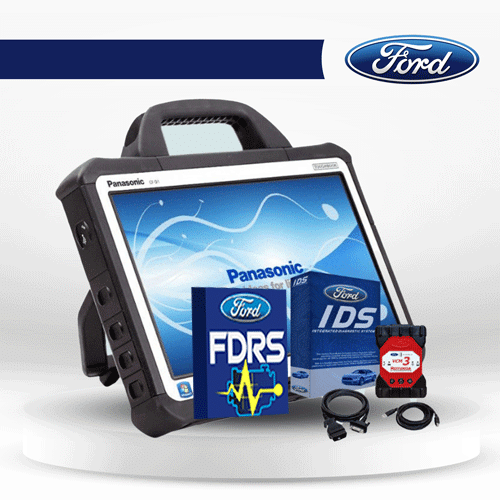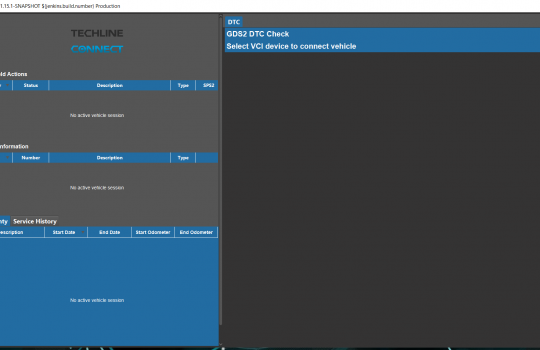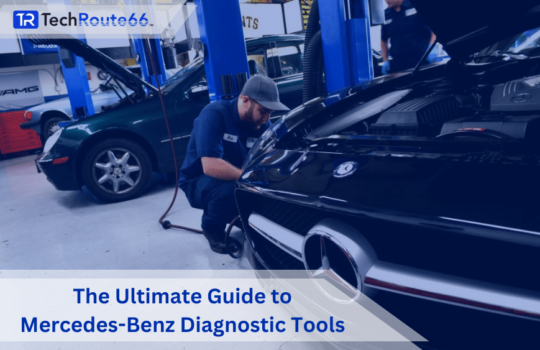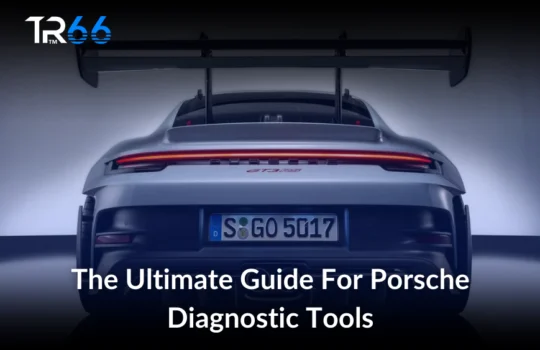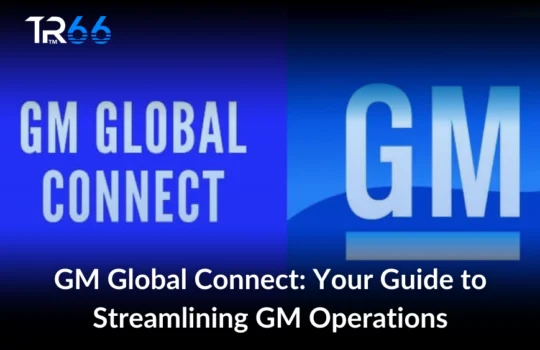Ford diagnostic tools for professional workshops combine FDRS/IDS software, a VCI interface (VCM3 or VCM II), valid dealer access (PTS/PATS) for online/security functions, and a reliable Windows laptop. In practice, you’ll use FDRS on newer Ford/Lincoln platforms and keep IDS for legacy workflows. Always confirm capabilities by VIN and active subscriptions; online programming demands stable power and network.
Quick actions (above the fold):
- Ford FDRS – 12-month subscription
- Ford IDS software
- Dealer online access (PTS/PATS)
- Original Ford VCM3 VCI
- Complete Ford diagnostics kit
Table of contents
- What counts as a “Ford diagnostic tool” (and why it matters)
- Professional stack vs consumer OBD readers
- FDRS vs IDS: when to use each
- Typical VIN/model-year coverage matrix
- Hardware: VCM3 vs VCM II (and why quality matters)
- Dealer access (PTS/PATS) for online tasks
- What jobs can the Ford stack handle?
- Recommended laptop specs (workshop reality)
- Choosing the right combo (decision table)
- Support, updates & risk control
- Why workshops pick TechRoute66
- FAQs
- Related resources
What counts as a “Ford diagnostic tool” (and why it matters)
In the real world, “Ford diagnostics” is a toolchain—software, hardware, access, and a capable laptop working together:
- Software
- FDRS (Ford Diagnosis & Repair System) for many 2018+ platforms with guided diagnostics and online workflows.
- IDS (Integrated Diagnostic Software) for legacy coverage and certain procedures on older platforms.
- Hardware
- VCM3 (current OEM vehicle communication interface) for robust comms on modern vehicles.
- VCM II still widely used for older workflows; many shops run both depending on vehicle mix.
- Access
- PTS/PATS (dealer-level online access) for security-sensitive and online programming tasks.
- Laptop
- Workshop-ready Windows machine with stable power, reliable USB/Ethernet, and enough CPU/RAM for smooth sessions.
This stack unlocks guided diagnostics, service functions, module coding/configuration, software updates/flash, PATS/immobilizer workflows with valid access, and—most importantly—faster first-time fixes with fewer comebacks.
Professional stack vs consumer OBD readers
TL;DR: Consumer OBD tools are fine for basic code reading/clearing. Professional workshops need FDRS/IDS + VCM3/VCM II + PTS/PATS for coding, programming, and security functions.
- Pros need: dealer-grade applications, reliable VCI hardware, and valid online access to complete coding/flash/PATS procedures.
- Consumers get: basic OBD, limited service resets, no online programming or immobilizer functions.
- Reality check: Shops should confirm by VIN & subscription before quoting any job that might require online steps.
Adding this clarity right up front reduces bounce from users searching “cheap OBD” while reinforcing why pro shops invest in the OEM stack.
FDRS vs IDS: when to use each
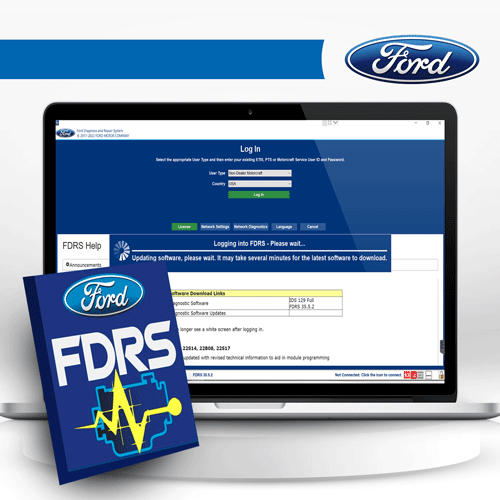
Ford maintains both tools because coverage and workflows differ. A pragmatic way to think about it:
| Feature / Use Case | FDRS | IDS |
|---|---|---|
| Primary coverage | Newer Ford/Lincoln platforms (commonly 2018+) | Legacy models & certain older procedures |
| Guided diagnostics | Modern UI with guided procedures | Mature, legacy-style flows |
| Programming/flash | Online programming with valid access | Legacy programming on supported models |
| PATS/PTS usage | Via PTS/PATS with dealer access | Via PTS/PATS with dealer access |
| Day-to-day recommendation | Default for modern vehicles | Keep in the toolbox for legacy compatibility |
Useful links while deciding:
Typical VIN/model-year coverage matrix
Guidance only — always verify by VIN and your active licenses/access.
| Model Year | Primary Tool | Notes |
|---|---|---|
| 2018+ | FDRS | Online functions may require PTS/PATS dealer access. |
| ≤ 2017 | IDS | Keep IDS for legacy workflows & coverage. |
This table gives your service writer and techs a fast mental model during intake while signaling that final confirmation is by VIN.
Hardware: VCM3 vs VCM II (and why quality matters)
The VCM3 is Ford’s current vehicle communication interface and is designed for modern protocols and robust communication on newer platforms. VCM II remains widely used and can cover many older workflows, but shops standardizing on VCM3 typically see fewer communication headaches on current vehicles.
Why the hardware matters:
- Stable comms during programming—the difference between a clean update and a bricked module.
- DoIP/Ethernet support—relevant as platforms evolve.
- Fewer intermittent issues—cheaper clones often introduce flaky USB/power problems that are hard to diagnose.
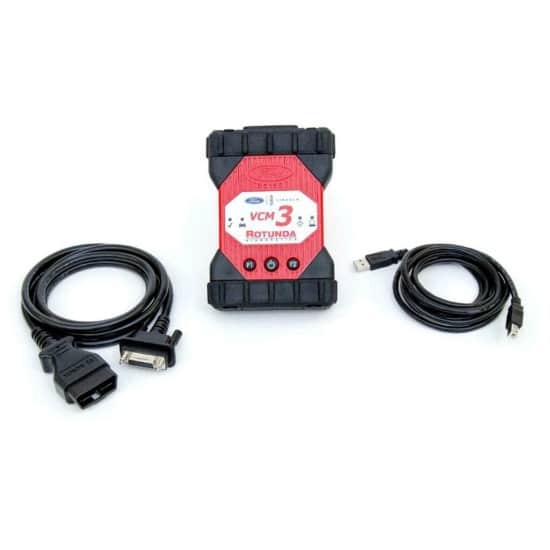
Explore hardware options:
Tip: Don’t let a $10 cable or a suspect USB hub sink a $1,000 job. Use short, high-quality cables and avoid under-powered hubs—especially during flash events.
Dealer access (PTS/PATS) for online tasks
Certain procedures—security-sensitive operations, some online programming/initializations, and immobilizer (PATS) workflows—require dealer-level access. Ensure the correct access is active before the vehicle rolls in for that work.
Operational note: Building a standard checklist for PATS jobs (access verified, battery support ready, network verified, VIN confirmed) saves time and reduces rework.
What jobs can the Ford stack handle?
With the right licenses and access in place, the Ford diagnostics stack enables:
- Guided diagnostics: DTCs, live data, network topologies, test plans.
- Service functions: adaptations, resets, calibrations (as supported by VIN).
- Coding & configuration: setting options or parameters after component replacement.
- Software updates/flash: updating module software; requires stable power and network.
- PATS/immobilizer: key programming, security functions with valid PTS/PATS access.
- Network tests: CAN and sub-bus communication checks; helpful for tricky intermittent faults.
Scope rule: Always cross-check the exact VIN for coverage. When in doubt, confirm with your access provider before promising outcomes to the customer.
Recommended laptop specs (workshop reality)

Your laptop is the “silent cause” of many diagnostic issues. Aim for reliability and headroom such as the Panasonic toughbook:
- CPU: Modern Intel i5/i7 (or AMD equivalent)
- RAM: 16 GB minimum; gives room for multiple apps/logging
- Storage: SSD 512 GB+; faster boots and frees for logs/snapshots
- Ports: Reliable USB (no shaky hubs), Ethernet (or proven adapter), Wi-Fi 5+
- OS: Fully patched Windows; keep drivers updated
- Chassis: Rugged or semi-rugged recommended; shop floors are harsh
- Power: Battery support + stable charger/UPS during programming
Prefer a zero-friction start? Consider a pre-vetted kit:
Choosing the right combo (decision table)
| Workshop Profile | Software | Hardware | Access | Why this combo |
|---|---|---|---|---|
| General repair, modern Fords | FDRS | VCM3 | PTS/PATS | Broad modern coverage + online workflows |
| Mixed modern + older vehicles | FDRS + IDS | VCM3 (VCM II optional) | PTS/PATS | Covers legacy and current platforms; fewer turn-aways |
| Key services (PATS focus) | FDRS/IDS (VIN) | VCM3/VCM II | PTS/PATS | Security functions require valid access & prep |
| Mobile tech (fast triage) | FDRS | VCM3 | Optional | Quick guided diagnostics; add access only when needed |
CRO tip: Put this table into your intake script. It helps sales/service advisors quote accurately and upsell where appropriate (e.g., adding IDS for legacy coverage).
Support, updates & risk control
- Licenses & access: Keep subscriptions current; lapses remove online functions mid-workflow.
- Power stability: Use battery support + charger during programming; never flash on weak battery.
- Network hygiene: Prefer wired Ethernet for flashing; use high-quality Wi-Fi only if proven stable.
- Cables & hubs: Eliminate weak links—cheap hubs/cables cause ghost comms issues.
- Documentation: Save key logs/screenshots to the work order. Customers love transparency; your team loves history when diagnosing comebacks.
- Benchmarks: Track average time-to-fix by job type; use that data to price confidently and schedule realistically.
Why workshops pick TechRoute66
- Remote activation & setup by professional engineers—get productive faster.
- Pre-vetted hardware that “just works” in real shop conditions.
- Fast support—diagnostic downtime kills bay profitability.
- Complete kits—hardware + software + access aligned to the work you actually do.
Explore core products:
FAQs
Is FDRS replacing IDS?
No. FDRS targets many newer platforms, but IDS remains vital for legacy coverage and certain procedures. Most professional shops keep both to avoid turn-aways.
Do I need VCM3 if I already have VCM II?
VCM II covers many older workflows; VCM3 is the current OEM interface and is recommended for modern platforms and better reliability. Many shops standardize on VCM3 and keep VCM II as a legacy backup.
Can I program modules and keys?
Yes—with valid subscriptions and online access (PTS/PATS), plus stable power and a reliable network. Always confirm by VIN and current access before quoting.
What laptop is best for Ford diagnostic tools?
A modern i5/i7, 16 GB RAM, SSD, reliable USB/Ethernet, and a rugged/semi-rugged chassis. Avoid under-specced machines and unstable hubs/cables—especially for flash events.
Where can I buy a complete Ford diagnostics setup?
TechRoute66 provides pre-configured kits with hardware, software, and remote activation. Start with the complete Ford diagnostics kit or pick individual items above.
Related resources
- Ford FDRS overview
- Ultimate FDRS & IDS guide
- Ford PTS guide
- Ford IDS software download (resource)
- All Ford products
{ “@context”: “https://schema.org”, “@type”: “ItemList”, “name”: “Ford diagnostic tools and services”, “itemListElement”: [ {“@type”: “ListItem”, “position”: 1, “name”: “Ford FDRS – 12 Months Subscription”, “url”: “https://techroute66.com/product/fdrs-ford-12-months-subscription/”}, {“@type”: “ListItem”, “position”: 2, “name”: “Ford IDS Software”, “url”: “https://techroute66.com/product/ford-ids-software/”}, {“@type”: “ListItem”, “position”: 3, “name”: “Ford Online Dealer Access (PTS/PATS)”, “url”: “https://techroute66.com/product/ford-ids-online-dealer-access-code-for-pts-pats/”}, {“@type”: “ListItem”, “position”: 4, “name”: “Ford Dealer Account for IDS/FDRS/FJDS”, “url”: “https://techroute66.com/product/ford-dealer-account-for-ids-fdrs-fjds/”}, {“@type”: “ListItem”, “position”: 5, “name”: “Original Ford VCM3 VCI”, “url”: “https://techroute66.com/product/vcm3-ford-original-vci/”}, {“@type”: “ListItem”, “position”: 6, “name”: “Complete Ford Diagnostics Kit”, “url”: “https://techroute66.com/product/ford-kit-ids-fdrs-software-license-ford-dealer-account-nano-vcx/”}, {“@type”: “ListItem”, “position”: 7, “name”: “Ford PTS Guide”, “url”: “https://techroute66.com/ford-pts-guide-from-techroute66/”} ] }
